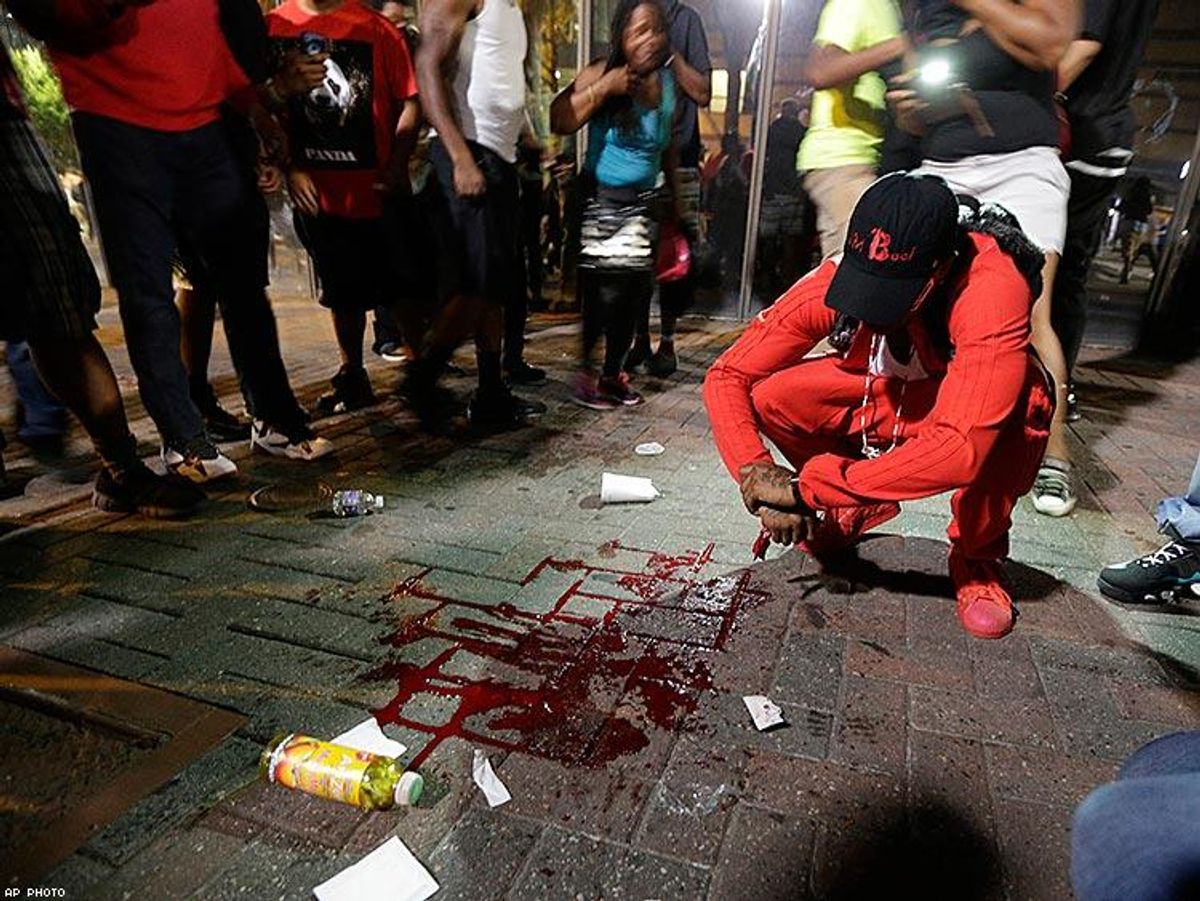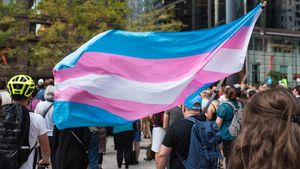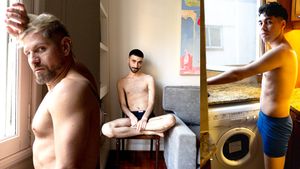All Rights reserved
By continuing to use our site, you agree to our Private Policy and Terms of Use.
North Carolina Gov. Pat McCrory declared a state of emergency in Charlotte after a prayer vigil turned violent, leading to broken windows, smashed cars, and multiple wounded civilians and officers. Twelve law enforcement officials were injured, according to the Charlotte-Mecklenburg Police Department, and at least one protester has been shot.
A second night of unrest swept Charlotte Wednesday after the fatal shooting of Keith Lamont Scott, 43, who was killed by police Tuesday. Police claim Scott was holding a gun, while his family says the 43-year-old was reading a book in his car while sitting in the parking lot of an apartment complex, waiting for his son to come home from school.
Video of Scott's death has yet to be released, but his family has asked Charlotte-Mecklenburg Police Chief Kerr Putney to release it, reports CNN. The chief said he has no plans to release the footage "to the masses," but that he would try to accomodate the Scott family.
Charlotte Mayor Jennifer Roberts did confirm that there is both dashcam and body camera footage of Scott's killing. She told CNN she will be looking at the footage Thursday.
Police shot at Scott while they were looking for another man who they were planning to serve with an arrest warrant; they mistook Scott for the suspect. In a press release, the police department maintained that Scott posed an "imminent deadly threat" to law enforcement officials.
Trending stories
"Officers observed a subject inside a vehicle in the apartment complex," the Charlotte-Mecklenburg PD stated in the press release. "The subject exited the vehicle armed with a firearm. Officers observed the subject get back into the vehicle at which time they began to approach the subject."
Officer Brentley Vinson, who has since been placed on administrative leave, "fired [his] weapon striking the subject."
"The officers gave loud, clear verbal commands that were also heard by many of the witnesses," said Police Chief Kerr Putney. "They were instructing the subject, once he got out of the vehicle, to drop the weapon. Despite the verbal commands, Mr. Scott exited the vehicle as the officers continued to yell at him to drop it."
Witnesses on the scene, as well as Scott's family, contest this version of events. Neighbor Taheshia Williams claims that the victim, a husband and father of seven children, was unarmed and cooperated with police.
"He got out of his car," she told press. "He walked back to comply, and all his compliance did was get him murdered."
That incident, following Friday's shooting of 40-year-old Terence Crutcher, an unarmed black man in Tulsa, Okla., triggered a wave of anger in the city that Scott called home. The majority of protesters were nonviolent, peacefully demonstrating with signs that read "Black Lives Matter," "Hands Up, Don't Shoot," and "Stop Killing Us."
A small contingent broke off and began vandalizing Charlotte's Uptown area Wednesday night, kicking through windows, setting fires, and attacking bystanders, including a reporter. Police, who initially kept their distance, intervened when protesters targeted an upscale hotel.
A local Walmart was looted, and police cars were vandalized.
"My heart bleeds for what our great city is going through," said McCrory, who was the mayor of Charlotte for 12 years. The killing of unarmed black men has rocked cities like Baltimore and Ferguson, Mo., in recent years, leading to millions of dollars in damage, and McCrory called in the National Guard Tuesday to minimize harm to the city.
North Carolina's treatment of minority groups, racial and otherwise, has been much in the news this year. In March legislators passed and Gov. Pat McCrory signed an anti-LGBT law, House Bill 2, that prevents transgender people from using the bathroom that corresponds with their gender indentity (in government buildings). It also prevents municipalities from enacting or enforcing LGBT-inclusive antidiscrimination ordinances or setting a minimum wage higher than the state's, and prevents workers from suing their place of employment for discrimination.
Jennifer Roberts, the mayor of Charlotte, decided this week not to ask the City Council to consider the repeal of the city's LGBT-inclusive public accommodations ordinance, which was nullified by HB 2.

















































































